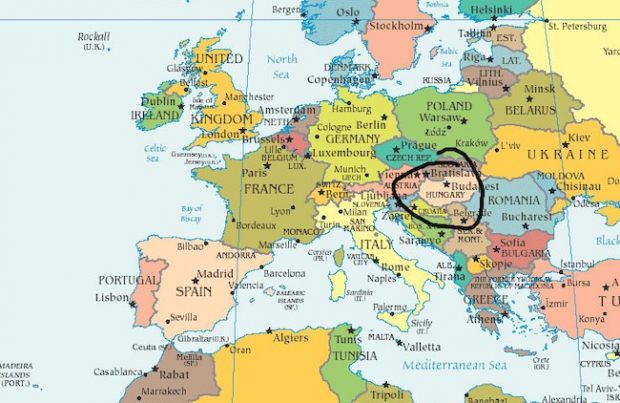
Hungary has been in the news from time to time, usually in a dismissive or derisive manner, especially because its outspoken Prime Minister, Viktor Orban, has made it clear that Muslims are not welcome in his country due to their incompatibility with that nation’s values. Most recently, on April 9, 2018, he won a big election victory on that platform. The results of that vote showed that the people of Hungary rejected the European Union’s embrace of multiculturalism and postmodern values. The National Post reported Orban saying: “We want Hungary to remain a Hungarian country. This is our world, our culture, our lifestyle. These are our life principles. We want to defend these and we don’t want others to change them.”
An important part of what Orban wants to maintain is the Christian culture of Hungary. After enduring years of communist dictatorship (1945-1989), the Christian heritage is more valued in Hungary than in many Western nations. In Orban’s case, one can be more specific, he treasures the Reformed heritage of his country which goes back to the sixteenth century Reformation. This fact was evident in a speech he delivered at the invitation of the Hungarian Reformed Church on the occasion of the national commemoration of the 500th anniversary of the Reformation. He made it clear that he spoke both as Prime Minister and as a member of the Reformed Church. What follows are parts of his speech delivered on October 1, 2017 in Budapest.
This anniversary also presents us with an opportunity to clarify, to discuss and reach conclusions on what lessons the Reformation has for public affairs, state administration and the building of the nation. This is what I would like to speak about now; and due to the constraints of time… I won’t explain things, I’ll simply say them.
He went on to say that a Christian government of faith leading Hungary is “a manifestation of God’s mercy. We believe that, after a period of antichristian, internationalist governance, Hungary needs a period of governance that seeks to follow Christian values; and we accept that task.”

“We don’t confuse our calling with the mission of our churches. Our calling is to protect the ways of life that have their roots in Christianity. We defend human dignity, we defend families, we defend the nation, and we defend our faith communities. For us this is not a mere task, but a duty and a calling which we must perform to the best of our abilities. We can see that the Hungarian people and Christian Europe are in need of spiritual and intellectual renewal…. While working to enable Hungarians to live well, we are also making efforts to enable them to a more fair, happier and richer lives, with hearts uplifted. The Reformation also taught us that we should never set a good, fine human life against a life serving the glory of God. What is good for a community of people glorifies God the Creator and Redeemer. That which serves the glory of God is the best for the people – indeed it is the ultimate good…
We not only want a future in which everyone has a job – we have almost achieved that – but a future in which the glory of God is also served by every form of work: from street sweeping to the country’s governance. Sincere worship for God and service for men.”
It is a breath of fresh air to hear statements such as those Prime Minister Orban made. The heritage of the Reformation is still alive in Hungary.
This article is by Dr Cornelis Van Dam – professor emeritus of Old Testament at Canadian Reformed Theological Seminary.
Sources used: Zoltan Simon and Marton Eder, “Hungary’s Anti-refugee PM who warned Muslim Immigrants Would ‘overrun’ Europe Wins Fourth Term” National Post April 9, 2018. “Prime Minister Viktor Orban’s speech at the national event commemorating the 500th anniversary of the beginning of the Reformation.” November 3, 2017 10.00 AM on the website of the Hungarian government.
Article previously published in Clarion, July 27 2018, and reprinted here with the author’s permission.